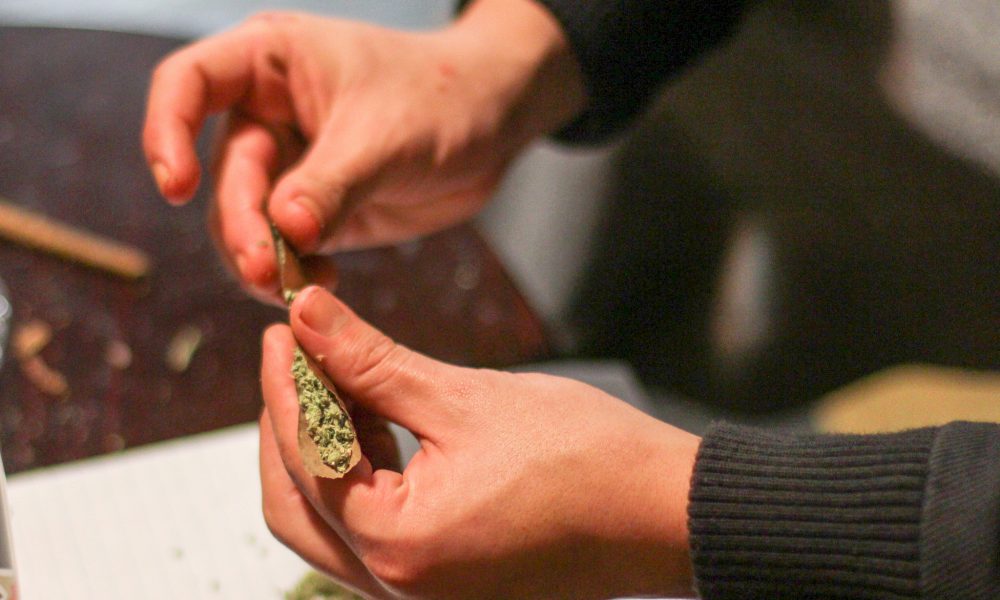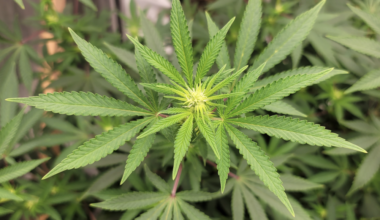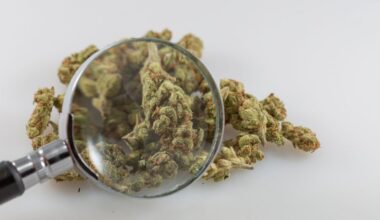People who attend the 2022 South By Southwest (SXSW) festival will have the chance to hear from a range of experts and stakeholders on marijuana and psychedelics issues.
A number of drug policy panels have been selected for the event, which runs from March 11-20. While cannabis has been a consistent track at SXSW in recent years, psychedelics is getting a lot more attention as the reform movement continues to expand.
The public played a role in shaping the agenda, voting on nearly 100 proposed panels on drug-related topics earlier this year. Now SXSW has narrowed it down, choosing nine marijuana panels and seven dealing with psychedelics.
When voting started, there were about five times as many proposed psychedelics panels for 2022 compared to those proposed for the 2021 event. There’s also a stronger emphasis on social equity-themed panels for cannabis, reflecting the evolving conversation around reform.
While there aren’t specific “tracks” for cannabis panels this year as was the case for past events, there are designated marijuana and psychedelics “summits.”
One is called the “Cannabis Industry Evolution.” Here’s the description:
“As the cannabis legalization movement continues to gain momentum across the globe, so does the immense opportunity for entrepreneurs, plus new and established businesses. The Cannabis Industry Evolution Summit explores today’s successful companies, along with ideas and products that will push the industry forward over the coming years.”
The other is titled “The State of Psychedelics.” Here’s that description:
“Psychedelics have played a role in human culture for centuries in both spiritual and recreational settings, and recent breakthrough research of psychedelics as a treatment for a wide range of psychiatric conditions shows promise. The Psychedelics Summit aims to explore the medical, economic, and ethical implications of these tripped-out chemicals.”
Here’s an overview of some of the notable marijuana and psychedelics panels that will be featured at the 2022 SXSW:
Marijuana
Sue ‘N The DEA: Breaking The 50-Year NIDA Monopoly
Sue Sisley of the Scottsdale Research Institute has played a key role in pushing the Drug Enforcement Administration to expand the number of federally authorized marijuana manufacturers and break the current monopoly. She’ll be joined by Matt Zorn and Shane Pennington, attorneys who have worked with Sisley on a number of lawsuits to force a policy change, for a conversation on the need to remove cannabis from its Schedule I status to promote research into the plant.
Cannabis vs. the Opioid Crisis?
Ricardo Baca, a journalist who started the cannabis-focused PR firm Grasslands, will host a chat on the science of whether cannabis can serve as an alternative to opioids amid an overdose crisis and whether people could use marijuana to help overcome opioid addictions.
Puff, Puff, Pass The Rewards: Equity In Cannabis Legalization
Leafly’s Janessa Bailey will talk about equity as more states move to legalize marijuana. The focus of this event is on understanding the context of the war on drugs and how discriminatory policies have alienated certain communities from benefiting from the legalization movement. It would look at possible solutions to the issue at the state level.
“As the fastest-growing American industry, cannabis has offered new economic opportunities to people across the country, but for many, those opportunities are still out of reach,” a description states. “As more states legalize, crafting policies that help to create a fair and equitable cannabis industry has never been more important.”
Cannabis: the Next Frontier in CPG
Representatives of major cannabis companies such a Curaleaf, Trulieve and Green Thumb Industries will discuss how marijuana stands out among other consumer packaged goods and “what the future of mainstream cannabis experiences looks like, the specific barriers the industry must overcome to reach this point, and how brands can prepare for this seismic shift.”
Psychedelics
Psychedelics For Therapeutics And Well-Being
Professors from John Hopkins University and Yale University will talk about the therapeutic potential of psychedelics with Tim Ferriss, an entrepreneur who has invested significantly into the research movement.
Questions that will be raised by the panel include: “How can psychedelics be widely used to alleviate human suffering through clinician-guided treatment of illnesses such as depression, PTSD, and addiction? Do mystical-type and insightful-type experiences associated with these substances improve overall well-being in patients and in healthy individuals? How can investors make psychedelic medicine accessible by financing academic research and for-profit companies and clinics?”
The Ethics Of “Mainstreaming” Psychedelics
DoubleBlind Magazine will be leading a conversation with expects including staff from the Multidisciplinary Association for Psychedelic Studies that will touch on the “unique ethical considerations around commodifying psychedelics” and the “moral obligation of psychedelic companies to give back to Indigenous stewards of psychedelic medicines.”
“The interest in psychedelics among the general population is growing exponentially,” a description says. “Meanwhile, hundreds of millions of dollars are pouring into psychedelic drug development, with some projecting the industry is less than five years behind cannabis.”
Have A Nice Trip: The Rise of Psychedelic Tourism
This panel will look at the rise of “psychedelic retreats” that have been “glamorized, dramatized, championed, and vilified by Hollywood.”
“In this session, you’ll learn what actually happens at a psychedelic retreat—where and how they operate amidst a complex, evolving web of state and national regulations; the daily work of psychedelic retreat facilitators; and the trends converging to drive this burgeoning new category of luxury travel,” a description says.
New Marijuana Laws Take Effect Across The U.S. With The New Year
Image element courtesy of Kristie Gianopulos.
Medical Disclaimer:
The information provided in these blog posts is intended for general informational and educational purposes only. It is not a substitute for professional medical advice, diagnosis, or treatment. Always seek the advice of your physician or other qualified healthcare provider with any questions you may have regarding a medical condition. The use of any information provided in these blog posts is solely at your own risk. The authors and the website do not recommend or endorse any specific products, treatments, or procedures mentioned. Reliance on any information in these blog posts is solely at your own discretion.







